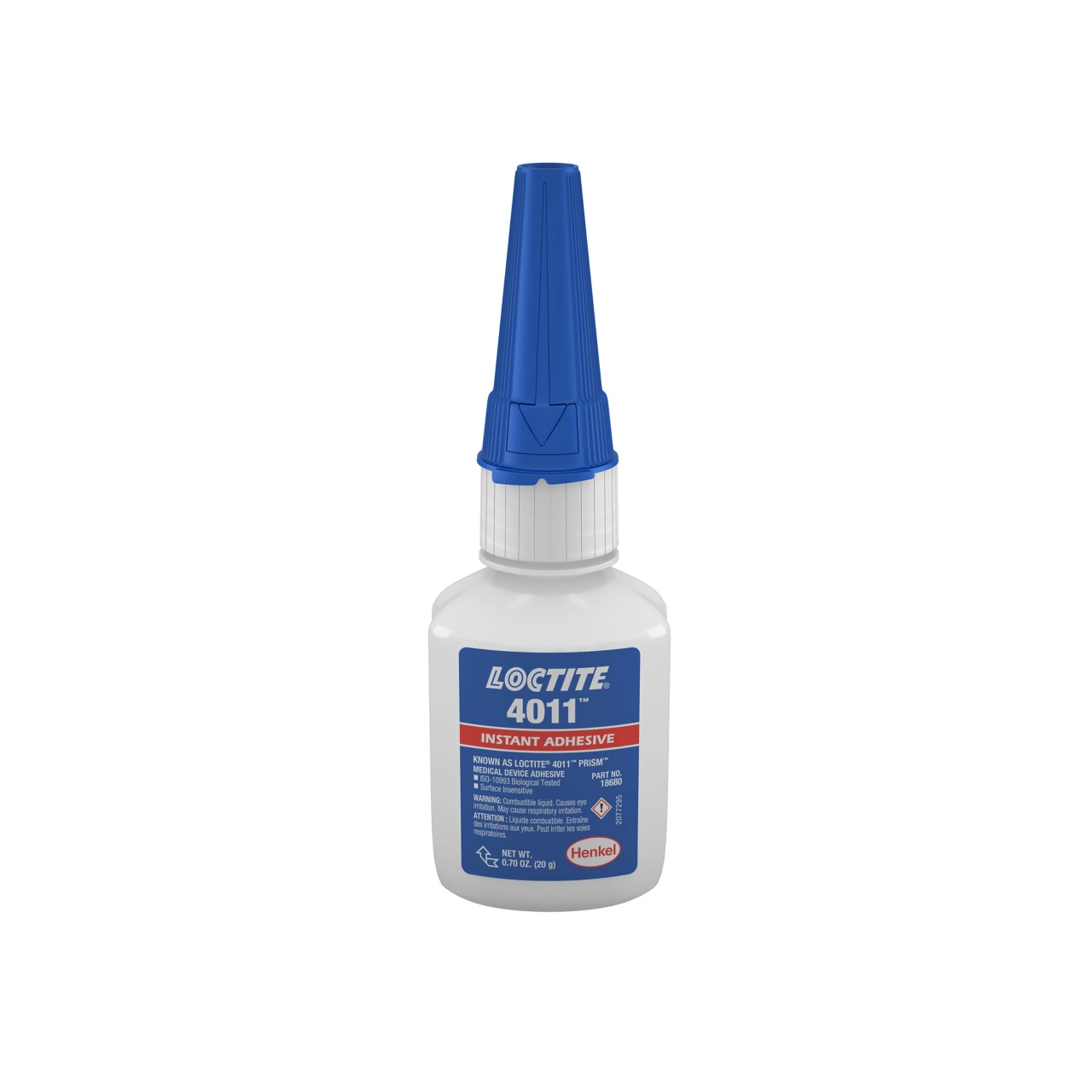LOCTITE 4011
- Instant adhesive
- Disposable medical devices
- ISO 10993 biocompatibility
Product Description
LOCTITE® 4011 is an ethyl cyanoacrylate, designed for the assembly of difficult-to-bond materials which require uniform stress distribution and strong tension and/or shear strength.LOCTITE® 4011™ is particularly suited for bonding porous or absorbent materials such as wood, paper, leather and fabric. Suitable for use in the assembly of disposable medical devices. The product provides rapid bonding of a wide range of materials, including metals, plastics, and elastomers.
LOCTITE® 4011 has been tested to Henkel's test protocols based on ISO 10993 biocompatibility standards, as means to assist in the selection of products for use in the medical device industry.
Fixture Time
The rate of cure will depend on the substrate used, ranging from less than 5 seconds @ Room temperature for the majority of substrates to 20 - 45 seconds on steel (Check the Technical data sheet)
Technical Specifications
| Thermal Properties | |||||
| Glass Transition Temperature (Tg) Glass Transition Temperature (Tg) The glass transition temperature for organic adhesives is a temperature region where the polymers change from glassy and brittle to soft and rubbery. Increasing the temperature further continues the softening process as the viscosity drops too. Temperatures between the glass transition temperature and below the decomposition point of the adhesive are the best region for bonding. The glass-transition temperature Tg of a material characterizes the range of temperatures over which this glass transition occurs. | 121 °C | ||||
| Thermal Conductivity Thermal Conductivity Thermal conductivity describes the ability of a material to conduct heat. It is required by power packages in order to dissipate heat and maintain stable electrical performance. Thermal conductivity units are [W/(m K)] in the SI system and [Btu/(hr ft °F)] in the Imperial system. | 0.4 W/m.K | ||||
| |||||



